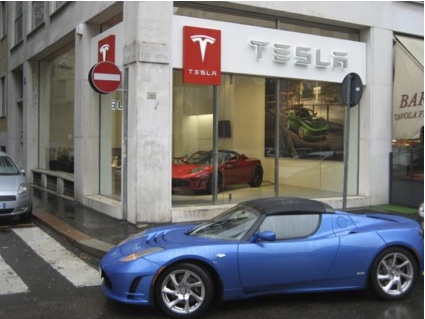Much of economics is simple: Makers of desirable, popular products can raise their prices--to some degree.
One example: Tesla Motors [NSDQ:TSLA] confirmed in a blog post yesterday that it would raise prices on its 2013 Tesla Model S all-electric sport sedan in the next two or three weeks.
But, Tesla hastened to add, that will apply only to new orders placed after a certain date--not to the prices of more than 13,000 Model S cars on which buyers have already placed deposits.
Reservation holders who have deferred the process of finalizing their configuration will have, the company says, a "fair, predefined time frame" to finalize their car's configuration and complete their order before they become subject to the higher prices.
The 2012 Tesla Model S is by far the most successful product launched by any of the new venture-funded startup carmakers, a universe that includes not only Tesla but also Fisker Automotive, Coda Automotive, and a few tiny companies with products far from the mainstream.
Part of the price increase may come from making certain standard Model S features or equipment into extra-cost options, Tesla said, though it did not give any examples.
The price increase serves two purposes: It lets Tesla lock down more sales and understand how those cars will be configured before they're built, and it boosts the incremental profit per vehicle of future sales.
As Tesla gears up its production toward the goal of 400 Model S cars per week, it is likely consuming a prodigious amount of cash.
Not only must it fund its current operations, it must complete development of the Model X crossover, start work on a new, smaller model line, and continue to open more Tesla Stores and service locations.
All of that costs money.

Milan's Tesla Store Opens up
Converting deposits to sales, and--even more importantly--realizing the maximum profit from every sold vehicle becomes vitally important if the company is to survive financially. And a price increase helps the company move toward that goal.
It's worth noting that Tesla has precedent for such an increase; in 2008, with the recession getting worse, CEO Elon Musk told buyers who'd put down deposits on its Roadster sports car that they would have to pay more for the cars they'd ordered but not yet received.
The scene in which Musk makes the announcement at a tense meeting of Tesla depositors is recorded in last year's documentary, Revenge of the Electric Car.
But Tesla, it seems, has learned from its mistakes: This time, as noted, the price increase applies only to new buyers.
+++++++++++













